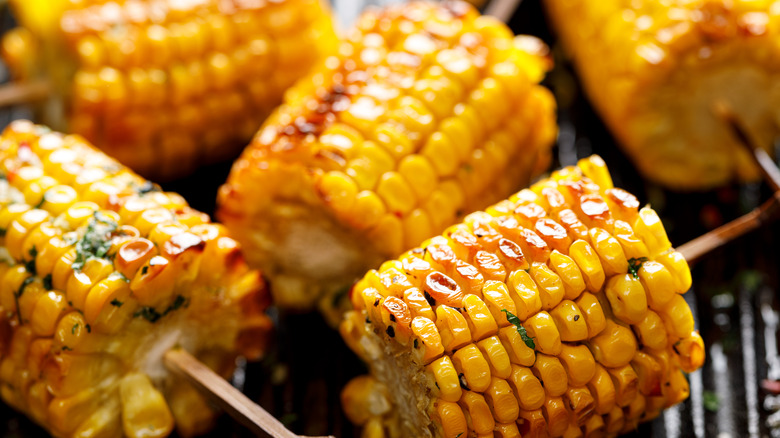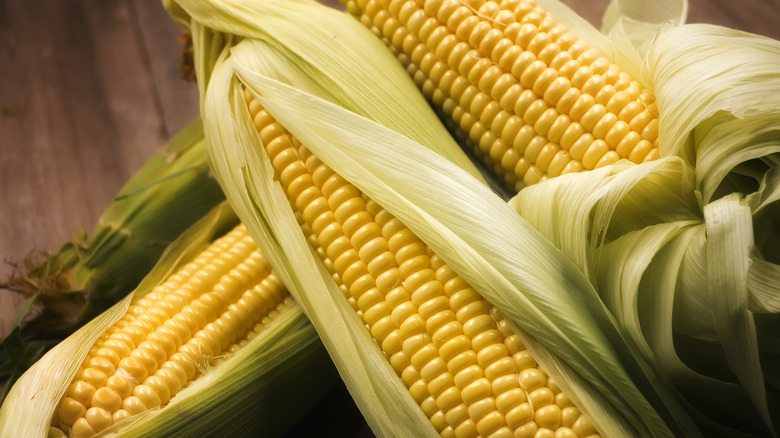Why You Shouldn't Brine Your Corn, According To Science
For many people, the pinnacle of summer food is fresh, sweet corn. While many love to have that ear smothered in melted butter, seasoned with a touch of salt, or even topped with some cotija cheese, the perfect pop of a juicy kernel cannot be resisted. Putting aside the perfect way to eat that seasonal starch, it's time to shuck an old myth about the best way to extract the most flavor from that ear. To brine or not to brine should no longer be questioned. Science has one definitive answer.
Some people might be familiar with the cooking technique of brining as it refers to poultry, which is another hotly debated subject regarding whether or not to brine that Thanksgiving turkey. That salty mixture is equally contested when it comes to soaking an ear of corn in that particular pot. The Chicago Tribune reports that America's Test Kitchen recommends the pre-grilling soak for plump kernels and this recipe idea is featured in its Cook's Country Best Grilling Recipes. The Kitchn believes that the brackish solution will seep into the cracks and create "super-tender ears." While all this cooking advice seems to be floating to the top, science is ready to shrivel this well-seasoned recipe myth.
The real reason why corn should skip the briny bath
Grilled, boiled, or even cooked in an air fryer, many people have explored various ways to cook corn. Add to that conversation preferences over butter, seasoning, or plain, there are plenty of ways to shuck a tasty treat. But, when someone suggests giving that corn on the cob a dip in a brine, science says to stay out of the water, or those plump kernels might look more shriveled than your fingers after too many hours swimming in a pool.
As tested by serious eats letting corn bathe in a salt solution does not result in plump, juicy kernels. Rather, the salt solution draws out the moisture. And, since corn cannot reabsorb any liquid, the kernels become dense, tougher, and not as flavorful. Although the author cannot answer how this cooking myth became popular, the truth is in the visual.
If some corn lovers just want to dip their ear into a salty liquid, Epicurious recommends a post-cooking soak. That method is said to be more flavorful than butter. Still, just like grandma's secret recipe that supposedly has some hidden ingredient, cooking myths might be seasoned with a little more fiction than fact. But, for the next round of corn on the cob, boost the flavor after cooking the ear and avoid getting drenched by a bucket of cooking concoctions.

